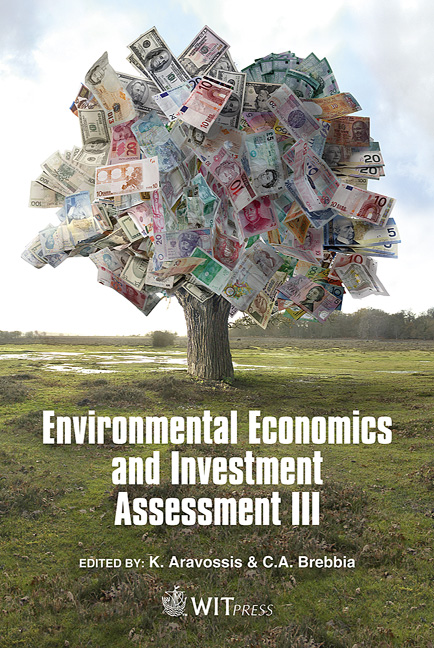Cost-benefit Risk Of Renewable Energy
Price
Free (open access)
Transaction
Volume
131
Pages
10
Page Range
85 - 94
Published
2010
Size
316 kb
Paper DOI
10.2495/EEIA100081
Copyright
WIT Press
Author(s)
K.-J. Hsu
Abstract
State-of-the-art economic analyses of renewable energy technologies (RETs) include using portfolio theory in renewable energy policy planning and using Monte-Carlo simulation to attain the risk profile of the technologies. Most economic analyses now co-list the risk index and GWP index as results of research/policy planning reports. After examining the variants of economic models for RETs, the risk dimensions of traditional energies and RETs were compared. The asymmetry risks allocated between traditional energy and RETs were shown. Combining these asymmetry risk allocations, a project-based RETs financial feasibility model which simultaneously integrates cost and risk information with respect to renewable and traditional energy technologies, was developed. Results of the analysis showed that the risk premium of traditional energies should include the effects of the escalation and volatility of fuel prices. On a national/regional level, the subsidy of fossil fuels for traditional energy production, which is embedded in the economic development policy, should be recovered and the degree to which investment of RETs improved the efficiency of cost-risk portfolio should be measured. On a project-based level, the effect of fuel price escalation and the saving of cost of risk-mitigation should be included. Keywords: energy economics, project-based analysis, economic feasibility, risk evaluation, energy risk. 1 Introduction When analyzing the economic feasibility of a renewable energy technology, both negative externality and price risk of traditional energy technologies (TETs) are major concerns, as well as the difficulty regarding integration into the evaluation model. Hsu et al. [1] used life cycle cost analysis and a saving-to-investment ratio to analyze the empirical data of a residential BIPV
Keywords
energy economics, project-based analysis, economic feasibility, riskevaluation, energy risk





